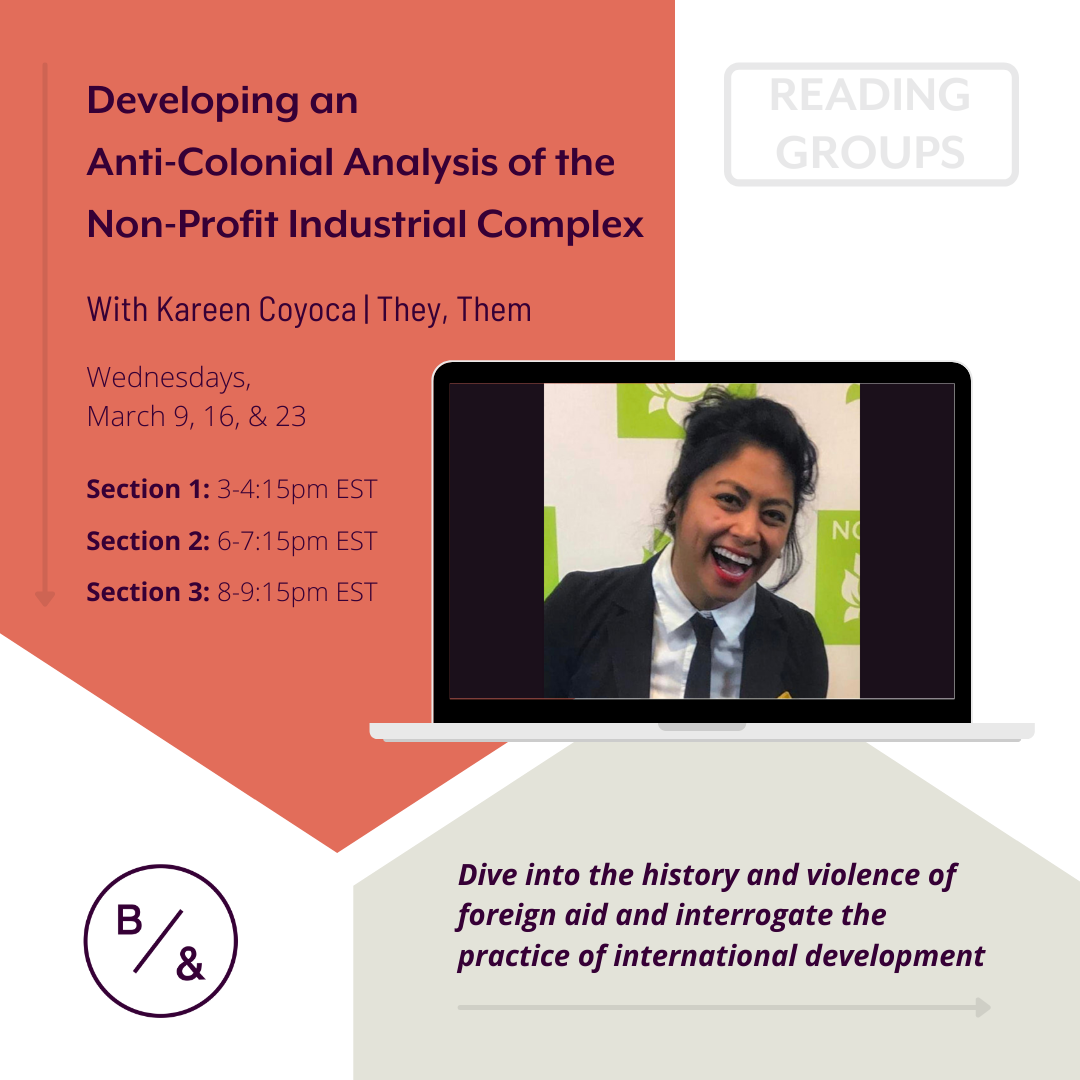Are you interested in re-examining your conventional knowledge and assumptions of colonialism and the NPIC? Come deepen your anti-colonial analysis of the NPIC with a 3-part reading series where we will dive into the history and violence of foreign aid, identify colonial legacies in international development and nonprofits, and interrogate the practice of international development. Over the course of 3 weeks, we will use readings from Chandra Talpade Mohanty, Dambisa Moyo, Walter Rodney, Arundhati Roy, Angela Davis, Michael Parenti, INCITE! Women of Color Against Violence, and more. Each session will include a short recap or lecture from the facilitator to frame the content.
Facilitated by Kareen Coyoca (They/Them).



















